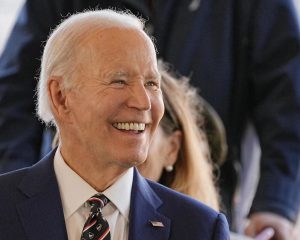Achtung! Germany’s Mercedes, Porsche stung by Trump’s auto tariffs
German luxury stalwarts Mercedes-Benz (MBGAF) and Porsche (P911.DE) usually count on the US for a sizable portion of their sales — approximately 25% for both automakers. But those days could be over, at least for the time being.
Earlier this week, Mercedes reported second quarter global car sales fell 9% to 453,700 units, with US sales down 12% compared to a year ago.
“Deliveries to dealerships were carefully calibrated to navigate new global tariff policies, impacting sales of Mercedes-Benz Cars in the U.S. and China in particular,” Mercedes said in a statement. The Trump administration implemented 25% auto sector tariffs on all imports starting in early April.
Interestingly, sales in Germany and Europe at large climbed 7% and 1%, respectively, with “rest of world,” encompassing regions like the Middle East, Africa, and South America, jumping 24%.
The company’s crosstown Stuttgart rival, Porsche, also reported sliding sales, with global deliveries down 6% to 146,391 units.
Porsche noted that US sales actually climbed 10% in the quarter, but there was a big caveat: “The increase is mainly due to higher product availability in the market and the price protection offered in the first half of the year due to increased import tariffs,” Porsche said in a statement.
Essentially, Porsche is admitting that it relied on pre-tariff inventory to boost sales and subsequently ate into its profit margins by price-protecting its customers — at least for now.
Porsche is in a uniquely troubling situation as its production is all done in Germany and EU countries like Slovenia. Mercedes’s exposure is not as acute, as the automaker has a major factory in Tuscaloosa, Ala., where the automaker makes its SUVs and some EVs.
As for Porsche, company CEO Oliver Blume (who is also CEO of Volkswagen Group) said Porsche will likely pass tariff costs on to its customers, but he did not say when. Porsche did not immediately respond when reached for comment on US pricing.

As for Mercedes, a spokesperson said in statement to Yahoo Finance that “we recognize the importance of consistency and transparency for our customers and dealer partners and are committed to maintaining current MY25 [model year 2025] pricing until further notice. Any customer who currently orders a MY25 Mercedes-Benz can be assured this price will not change.”
“We continue to monitor the situation closely, are evaluating all options, and will adjust to changing market conditions and the competitive landscape if needed,” the spokesperson added.
Mercedes said earlier this spring that it would price-protect and absorb “some” tariff costs for 2025 models, at least for now. One way automakers can maintain current pricing but pass on tariff costs to buyers is by, for example, eliminating certain incentives.
Germany’s auto sector represents a big portion of the country’s economy, and Germany as a whole is one of the key cogs in the EU’s total industrial production. That’s why the EU is feverishly negotiating with US negotiators to strike a deal. Politico reported that the US offered the EU a 10% tariff deal — similar to the one struck with the UK — though major caveats remain.
Time is of the essence for the EU to strike a deal for the German luxury brands because pre-tariff inventory is likely exhausted, and eating into shrinking profit margins can only last so long.
And it’s not just Germany’s luxury names that are suffering — its biggest automaker is hurting too.
Germany’s Volkswagen, the world’s No. 2 automaker by volume, also reported global sales climbed 1.2% in Q2 but dropped 29% in the US compared to a year ago.
Pras Subramanian is the lead auto reporter for Yahoo Finance. You can follow him on X and on Instagram.


